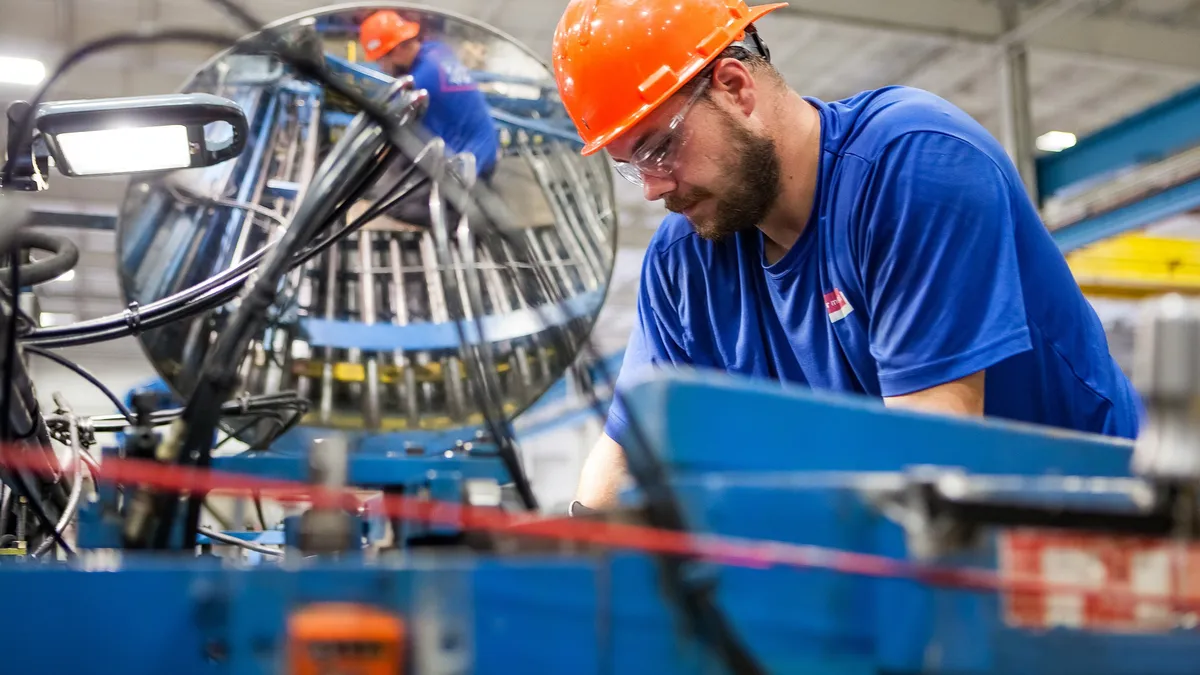Dive Brief:
- The 2021 BDO Manufacturing CFO Outlook Survey found that 50% of middle-market manufacturers plan to identify alternative or backup suppliers this year to overcome disruptions wrought by the pandemic.
- Nearly a quarter (24%) of those surveyed plan to relocate their supply chains to another country in 2021. Europe was listed as the most stable market outside of the U.S. to source materials long term. Only 10% said China was a stable location outside the U.S. for long-term sourcing.
- Of middle-market manufacturers surveyed, 22% reported plans to address supply chain weakness by reshoring to the U.S in 2021, following years of geopolitical tension, tariffs and labor expenses.
Dive Insight:
Manufacturers weathered the struggles of 2020 by being agile and resilient, maintaining relationships with suppliers, finding new sourcing options quickly and implementing technology to shore up needs for remote work and keep up with the increased use of e-commerce. Companies must remain vigilant in 2021.
"Everyone is more sensitive ... [with] a lot of decisions being made on short-term cash needs," said Eskander Yavar, BDO's national manufacturing practice leader.
Yavar said many companies are rethinking their sourcing because of tariffs and high shipping costs. For reshoring to the U.S., it may take time to see what impact the new presidential administration will have, before companies morph their supply chains to improve manufacturing and distribution capacity.
Many manufacturers are treading cautiously on implementing wholesale changes during the pandemic, according to Yavar.
One area the data shows they have not hesitated is to integrate technology into their supply chains. A December ISM report found 65% of U.S. manufacturers focused on reevaluating their use of data and analytics to stabilize processes during the pandemic. That technology gives more visibility so that companies can have a better understanding of what's happening end to end.
Digitizing the supply chain is a strategy companies see as an investment priority to ensure more agility and stability long term. More than half (52%) of manufacturers in the BDO survey said they intend to invest in supply chain technology this year to improve and increase efficiencies, end-to-end visibility, and flexibility and responsiveness.
Still, with concerns about the economy, and some manufacturers struggling to pay debts as is, every company can't justify quickly making the technological switch. If the investment will not be covered in the final product price, there likely isn't a compelling business case.
"Can they make it up in price? And the answer is probably not today. They can't make up that ROI on that captial expenditure that they need to make for all the technology and all the automation in price immediately, so those CFOs are pushing off investing in that value because they didn't think they can get the return in today's environment," Yavar said.
He suggested that this year, in particular, companies have to carefully weigh their short- and long-term goals when deciding which immediate direction to take.
As companies consider alternative suppliers and evaluate reshoring to mitigate vulnerabilities in the supply chain, the BDO report advises that they meticulously examine their global network footprint and factor in all the trade and tax implications.
This story was first published in our weekly newsletter, Supply Chain Dive: Procurement. Sign up here.













